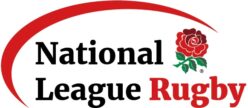Balancing Rugby and Academics: Time Management Strategies for Students
Students juggling rugby and school should try to manage their time well. Student-athletes need a compelling strategy to balance study and sport. We’ll discuss detailed tactics to assist student rugby players in excelling in both areas.
Setting Clear Goals: Academic and Athletic Priorities
Academic and athletic goals must be set first to balance these responsibilities. Unfocused objectives can lead to overload and loss of priorities. Setting clear, quantifiable, and realistic goals helps students stay motivated and manage their time.
Defining Long-Term and Short-Term Goals
Student-athletes should develop long-term and short-term goals for time management. Long-term goals may include a specific GPA, graduating on time, or qualifying for regional or national rugby competitions. Goals give direction and purpose. Students stay on track by setting short-term goals like weekly readings or all practices. Students may assess progress, stay engaged, and modify priorities by breaking down goals.
Balancing Academic and Athletic Responsibilities
Student-athletes struggle to balance academics and athletics. During busy exam periods and high-volume assignment seasons, prioritizing academic study becomes essential. Meanwhile, athletic obligations may require increased training and preparation, particularly during major tournaments.
By delegating some responsibilities to writing services, student-athletes can achieve a better balance between these demands. For example, an essaymarket review can offer insights into reliable services that assist with academic work, allowing student-athletes to meet their educational requirements while maintaining their sports commitments.
Time Management Strategies for Student-Athletes
Time management is crucial to student-athlete success. A regular timetable helps students manage their duties and achieve balance without feeling overwhelmed. Student rugby players may stay organized and maximize their time with these tips.
Crafting a Weekly Schedule
Managing many tasks requires a well-organized weekly agenda. This timetable should contain lessons, study, practices, and personal time. Visualizing their obligations helps students plan their weekly time. Students may arrange shorter, concentrated study periods between courses and practices to stay on task without feeling pressured. Google Calendar and Notion can assist in making reminders and seeing the calendar to minimize conflicts.
Prioritizing Tasks: The Eisenhower Matrix
The Eisenhower Matrix prioritizes jobs by urgency and priority, which can help manage a demanding workload. Urgent and critical tasks like studying or finishing a big assignment should come first. You can also use additional services like writing assistance to save time and better plan.
For instance, the expert verdict in the StudyBay review can examine aspects like low-quality services to help students make informed decisions. Studying for next week’s quiz or organizing lecture notes can wait. Completing high-priority work on time and allowing room for lower-priority chores helps student-athletes decrease last-minute stress.
Building Productive Study Habits
Student-athletes must optimize their study time with effective methods. Through productive habits, individuals may cover vital content faster and decrease assignment and test time.
Active Study Techniques for Enhanced Retention
Students learn quicker and better with active recall, spaced repetition, and summary. Students should challenge themselves on essential topics instead of passively studying notes to increase retention and understanding. Flashcards, chapter summaries, and self-quizzing improve learning. Student-athletes may do more in less time by concentrating on these approaches, freeing up training and rest hours.
Choosing Ideal Study Environments
The correct setting is essential for good learning. A library or study area may reduce distractions and boost attention. A distraction-free atmosphere helps athletes maximize their study time between training sessions. Keeping study environments orderly and clear of distractions can increase productivity in less time.
Maintaining Physical and Mental Well-being
Physical and mental health are needed to balance rugby and academics. Burnout can harm student-athlete performance in both areas without sufficient treatment.
Prioritizing Rest and Recovery
Rugby players must relax and recover after intense training. Muscle healing, cognition, and mental clarity require adequate sleep. Sleeping regularly and having rest days helps reduce burnout and boost intellectual and athletic vitality. Stretching, hydration, and nutrition help student-athletes stay healthy and perform effectively.
Stress Management Techniques
Managing two obligations may be stressful. Stress management practices, including deep breathing, mindfulness, and brief meditation, help reduce mental pressure. These methods keep student-athletes calm and engaged when multitasking. Students can reduce anxiety and improve academic and athletic performance by spending only a few minutes daily on these techniques.
Leveraging Technology for Academic and Athletic Success
Students-athletes who need to organize tasks might benefit from technology. Students can improve their work and management with digital study tools and productivity applications.
Productivity and Task Management Tools
Student-athletes use Notion, Trello, and Google Keep to organize, manage, and create reminders. Students may use Trello and Notion to build visual boards, set deadlines, and split down work. Digitally tracking these obligations helps students avoid last-minute stress and stay organized throughout the year.
Study Tools to Enhance Learning Efficiency
Quizlet for flashcards, Grammarly for writing, and Anki for spaced repetition help improve studying. These technologies save time and help students focus on course material by automating study routines and improving writing. These gadgets can save hours on monotonous work, allowing for training or leisure.
Staying Motivated and Consistent
Long-term student-athlete success requires consistency and drive. Balance academics and athletics demands persistence and positivity, especially during tough times.
Celebrating Progress and Small Wins
Recognizing achievements like passing a challenging course or playing well in rugby may enhance morale. These tiny wins help student-athletes acknowledge their hard work and effort, strengthening their commitment to juggling both. Recognizing successes, no matter how minor, boosts confidence and motivates.
Embracing a Growth Mindset
Dual-role management will be complex. Student-athletes develop resilience and flexibility by viewing setbacks as learning opportunities and a growth mentality. Accepting problems with a good attitude helps individuals overcome academic and athletic disappointments, which is essential both in school and in the workplace.

